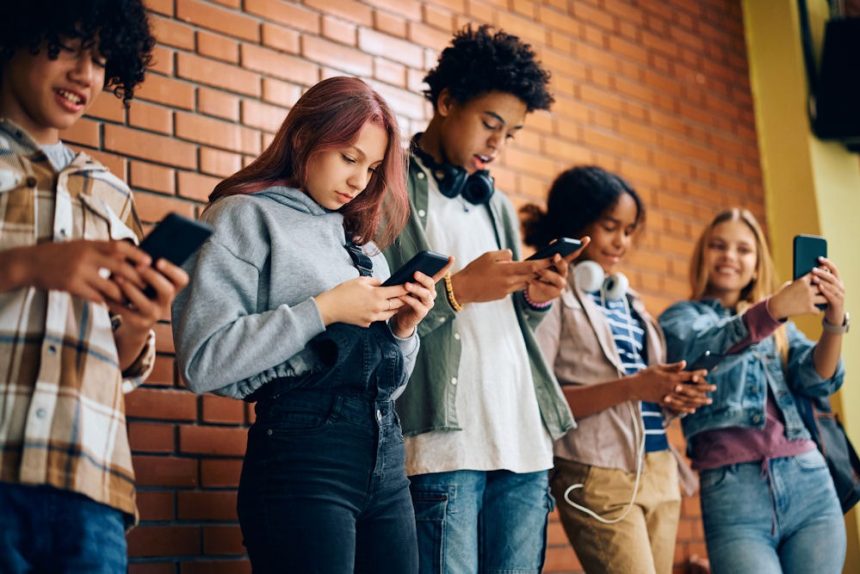Ever wonder why teens are glued to their screens, constantly scrolling, liking, and posting? It’s no secret that social media has become a major part of teen culture, but what’s less obvious is the addictive grip it has on their lives. From TikTok dances to the latest memes, the online world is where they socialize, express themselves, and seek validation. But there’s a darker side—one that’s leading to unhealthy habits and even addiction. Keep reading to learn the reasons behind teens’ obsession with social media and what steps can be taken to help them navigate the digital world without falling into addictive patterns.
The Allure of Validation: Why Teens Crave Social Media
Social media platforms are designed to keep users engaged for as long as possible, and teens are particularly vulnerable. They’re at a stage in life where they crave approval and validation from their peers. Every like, comment, or share acts as a little burst of dopamine, and it’s no wonder they keep coming back for more. When you’re a teenager, the need to fit in and be seen as “cool” can be overwhelming. Social media fills this gap, but the problem is that it never really satisfies—teens are constantly chasing that next hit of validation. The cycle of posting, waiting for reactions, and comparing their own profiles to others can quickly become a daily obsession.
Solutions: Introducing an Adolescent IOP
The most positive step for teens struggling with social media addiction is accessing support like an adolescent IOP (intensive outpatient program). These programs focus on teaching young people how to manage their time online, set healthy boundaries, and deal with the emotions that come from constantly seeking digital validation. The goal is to help them regain control without having to completely disconnect from the online world. It’s about balance, not total isolation. By learning healthier ways to engage online and understanding what triggers their need for approval, teens can still enjoy social media without it taking over their lives.
The Impact of Influencers & How to Help Without Being Overbearing
One of the most powerful influences on teens today is the content creator or influencer. Teens see these figures as role models, aspiring to live their seemingly perfect lives. The pressure to keep up with curated, polished content can cause teens to feel inadequate or constantly in competition. This can lead to anxiety, low self-esteem, and, ultimately, an unhealthy reliance on social media as they try to emulate what they see.
Parents and caregivers often want to step in, but it’s important to know how to help without being overbearing. Teens value their independence, so rather than demanding they delete apps or cut screen time drastically, focus on having open conversations. Help them understand the difference between online personas and reality. Encouraging them to take breaks and participate in offline activities can also provide a much-needed reset.
Escaping the Social Media Trap: The Role of Mental Health
It’s no surprise that social media use is often linked to teen mental health issues like depression, anxiety, and loneliness. The constant barrage of images and stories showing the “best” moments of everyone’s lives can make teens feel like they’re not measuring up. The fear of missing out (FOMO) keeps them scrolling, hoping to catch that next exciting update or event.
Addressing this means prioritizing mental health, and that’s where professional support can come in. Therapy, counseling, or support groups designed specifically for teens can offer strategies to combat negative feelings triggered by social media. For some teens, taking “digital detox” periods can be beneficial, giving them a chance to recharge and engage in face-to-face interactions, which are proven to boost mood and confidence.
Finding Real Connections in a Digital World
While social media often feels like a space for connecting with others, it can ironically lead to isolation. When teens spend hours online, they miss out on real-life experiences that help build meaningful relationships and develop social skills. The best way to break free from the cycle is to encourage real-world interactions. From joining clubs or sports teams to volunteering, teens who engage in offline communities tend to feel more fulfilled and less reliant on online approval.
Parents, schools, and communities can work together to create spaces where teens feel welcome and valued beyond their social media profiles. By promoting environments that focus on skill-building, creativity, and collaboration, teens can find fulfillment and self-worth outside of their digital lives.
Conclusion
Social media isn’t going anywhere, and it’s not all bad. But for teens, finding a healthy balance is key to avoiding the pitfalls of addiction. With the right support, education, and opportunities for offline engagement, they can learn to use social media responsibly while staying connected in more meaningful ways. The goal isn’t to eliminate social media from their lives but to help them navigate it in a way that prioritizes their well-being and long-term happiness.
Lynn Martelli is an editor at Readability. She received her MFA in Creative Writing from Antioch University and has worked as an editor for over 10 years. Lynn has edited a wide variety of books, including fiction, non-fiction, memoirs, and more. In her free time, Lynn enjoys reading, writing, and spending time with her family and friends.















